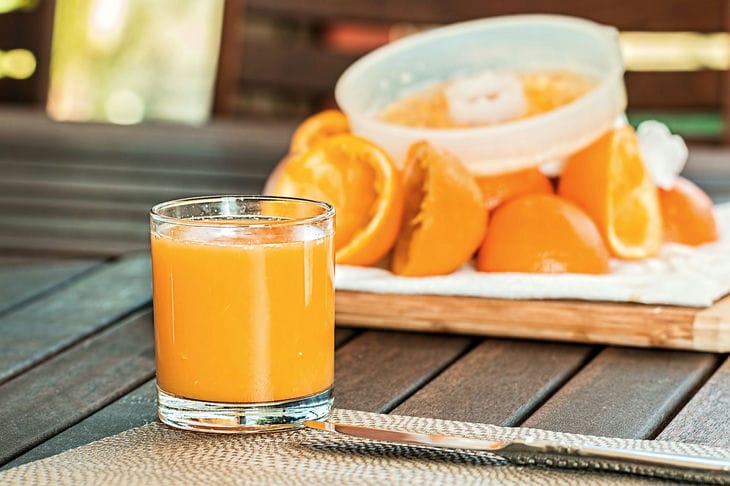Many people have included freshly squeezed juices in their menu in order to benefit from them and simply enjoy their taste, which is easily comparable to store-bought options.
However, do we know everything about these juices? Sometimes myths and misconceptions are stronger than real facts in the human mind. Here are just a few of these myths.
Myth number one: fresh juices should be drunk when you feel thirsty. Not quite: juices that are freshly made from apples, oranges or carrots are more likely to quickly satisfy hunger than quench thirst.
After all, in addition to liquid, they contain vitamins, sugar, and fiber from vegetable or fruit pulp. You can refresh yourself in the heat with a glass of cool juice, but you will still want to drink even more later. And when thirsty, it is better to drink pure water than juice.
The second myth is that freshly squeezed juice is great to drink before breakfast, on an empty stomach. No, because freshly squeezed juice from fresh fruits contains a lot of acids, which, when entering an empty stomach, will begin to destroy its mucous membrane, increase the acidity of the gastric juice and can provoke heartburn and pain.

And with regular consumption of such juices on an empty stomach, you are unlikely to avoid gastritis, peptic ulcers and inflammation of the pancreas (remember the large amount of sugar in fresh juices).
If you want to start your morning with liquid, it is better to start with plain water without any additives, and finish your breakfast with freshly squeezed juice. This will be more correct and safer.
Myth number three - drinking freshly squeezed juices is useful for losing weight faster. Incorrect statement: firstly, if you drink only them and eat nothing else, you will not only lose weight, but also have stomach problems and a deficiency of many microelements.
And secondly, fresh juices are a source of natural sugars, including glucose, the excess of which affects weight. Freshly squeezed juices can be used in acceptable quantities and as a natural and tasty supplement to the main diet menu, but you cannot build a diet solely on them.
The fourth myth concerns the permissible amount of freshly squeezed juices consumed regularly. For some reason, many people think that fresh juices are natural, and therefore harmless, and you can drink them in liters.
Unfortunately, no: if you drink freshly squeezed juices a lot and every day, they can cause a lot of harm. Sour citrus juices will affect the health of the stomach and increase the sensitivity of tooth enamel, carrot juice, if consumed frequently, can provoke hypervitaminosis of vitamin A, and it will come to yellowing of the skin on the body and face.
The maximum amount of juice that can be consumed freshly squeezed in 24 hours is 150 milliliters. And you should drink it slowly, through a straw, not in one gulp, so as not to ruin your teeth.
Myth number five - you can squeeze juice from a large amount of fruits or vegetables at once, then store it in the refrigerator and drink it whenever you want.
If you just want to have real juice at home, and not buy store-bought juice made from diluted concentrates and stuffed with preservatives, then this approach is justified.
If your goal is to improve your health with fresh juices, then you shouldn't store them for future use. Even in the refrigerator, they quickly lose their beneficial properties, and therefore it is recommended to drink the juice immediately after you squeeze it.
The sixth myth is that juices are a concentrate of vitamins and fiber, and therefore drinking them is much healthier than eating fresh fruit. Not at all.
There is still less fiber, which is so necessary for the body, in a glass of apple or carrot juice than in the vegetable/fruit itself, but there is more sugar per serving of juice.
It is better not to go to extremes, but to combine both fresh juices and the fruits themselves in your diet in order to get all the benefits from them.
And the seventh myth - juices are great for detoxing or fasting days for the body, using only them for one or two days for cleansing. No, because the body does not need detox as such at all when it is functioning normally.
Kidneys, liver and our skin filter everything that enters our body well and remove excess with sweat, feces and urine. And they do not need additional help in this. So detox on fresh juices can be considered only an advertised procedure, profitable for sellers of juicers, fruits and vegetables, but not a therapeutic measure.
Earlier we reported on the benefits of aspic .









